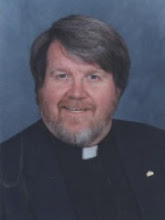 Born in a parsonage on the Massachusetts frontier, he travelled to Yale to begin studies there at age 13, receiving his AB at 17, and MA at 20. By his mid-20's he joined a grandfather at the prominent Northamption church, where he served for 23 years.
Born in a parsonage on the Massachusetts frontier, he travelled to Yale to begin studies there at age 13, receiving his AB at 17, and MA at 20. By his mid-20's he joined a grandfather at the prominent Northamption church, where he served for 23 years.Edwards had absorbed the philosophy of Locke as a student and embraced a thorough-going Calvinism. Thus, his mind considered theological as well as scientific topics. Fame in his lifetime came from his religious writings, particularly with the Great Awakening in the mid-1730's -- a religious movement he played a large part in bringing to the faith expressions of the British colonies in North America. He was a dominant figure in its developments, as preacher and theologian. One of his most famous sermons was "Sinners in the Hands of an Angry God." In part, he invited his hearers / readers to consider that "The God who holds you over the pit of hell, much as one holds a spider, or some loathsome insect over the fire, abhors you, and is dreadfully provoked: his wrath towards you burns like fire .... O Sinner! Consider the fearful danger you are in: it is a furnace of wrath, a wide and bottomless pit, full of the fire of wrath, that you are held over in the hand of that God.... Therefore, let every one that is out of Christ, now awake and fly from the wrath to come." Whew! Talk about hellfire and damnation.
Edwards was a staunch Calvinist -- it is all about God's decision -- but he still seems to preach for conversion.
Edwards eventually fell out of favor with his congregation, was voted out of office, and headed to western Massachusetts as a missionary to the Indians. Then in 1757 Jonathan Edwards was offered the job of college president at what was to become Princeton. Encouraging Christians to embrace the latest scientific advances, he took an early smallpox inoculation in Princeton and promptly died from its effects. Yet, his writings live on, and his language style certainly pervaded the American preaching scene for generations.





No comments:
Post a Comment